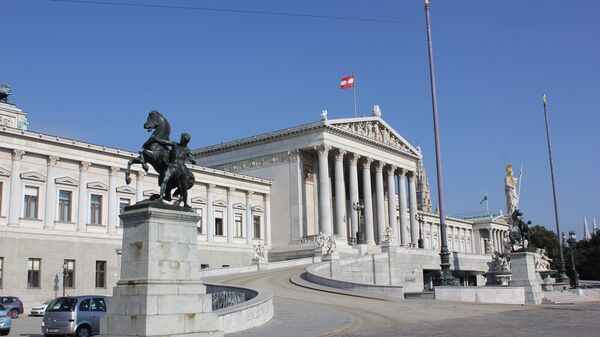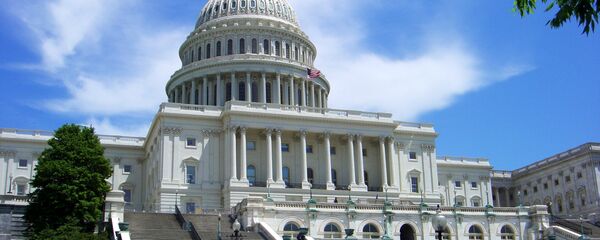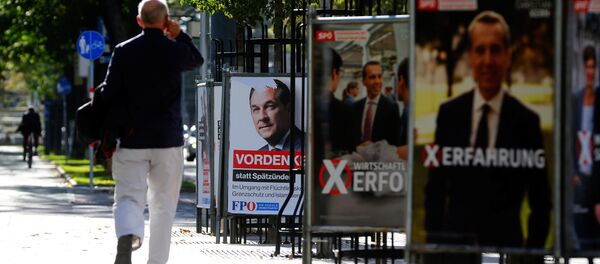Short Insight
The current minister of foreign affairs and the leader of the center-right Austrian People's Party (ÖVP), Sebastian Kurz, has the best chances to win today's parliamentary election, according to a poll However, his party will most likely have to form a coalition, since it is unlikely to receive the required 50 percent of the votes to form the government.
The main questions are: With whom would the Austrian People's Party make an alliance, and how can Austria's policy change after that?
Existing Options
The latter is "showing very good results" in the ongoing race, but a coalition between the FPÖ and the ÖVP seems rather unlikely, a political expert and research fellow with the Russian Academy of Science, Alexander Kamkin, believes.
"These two political forces are unlikely to be able to form a coalition, since the Freedom Party of Austria is being perceived as an ultra-right one. Most likely, both the Social Democrats and the People's Party will unite against the FPÖ," Kamkin said in an interview with RT.
At the same time, professor of political science at the University of Innsbruck, Gerhard Mangott has a different opinion on the issue. He did not rule out the creation of a new ruling coalition consisting of the ÖVP and the FPÖ and said that an alliance between the two parties is a very likely option.
"Most likely, there will be a coalition between the ÖVP and the FPÖ. From a mathematical perspective, there is also the possibility of a coalition between the ÖVP, NEOS and the Greens, but the probability of such alliance is not very high," Mangott told Sputnik.
Changes in Austria's Policy?
"If the FPÖ joins the government, it will undoubtedly try to pursue a more favorable foreign policy toward Russia and seek closer cooperation with Austria's eastern neighbors, but it is unlikely to be able to take the lead against the Foreign Ministry," Mangott told Sputnik.
As for the head of Austria's Foreign Ministry, Sebastian Kurz, he takes a dual position toward Russia, experts believe. In January 2017, he advocated a "gradual lifting of sanctions," but almost immediately made a reservation.
"The lifting of EU economic restrictive measures against Russia is connected with the full implementation of the Minsk agreements. But since the progress on their implementation has been insignificant, the sanctions have recently been extended," Kurz said.
However, in July 2017, at a meeting of Organization for Security and Co-operation in Europe (OSCE) foreign ministers, Kurz stressed that peace in Europe can be ensured only in cooperation with Russia, and in August he opposed the sanctions imposed on Russia by the US.
Thus, Kurz has a more or less balanced position toward Russia, Austrian politician Andrey Serov said in an interview wirth Sputnik earlier. However, he believes that Kurz or any other politician won't be able to lift anti-Russian sanctions and move toward dialogue because of other EU countries.
According to him, Brussels draws Vienna into "a new Cold War with Moscow"and thus the hands and feet of Austrian politicians are literally bound. In his opinion, all decisions are made in Brussels which — by imposing sanctions against Russia — fuels conflicts between Vienna and Moscow.





